Original text: Hagop Baronian, Collected works, vol. 6, pp. 196-198
***
Since the creation of the world, this creature alone has never changed its primordial nature.
Everything was changed. Even the animals which were created before her more or less changed their character with the passage of time.
Indeed, science attests that many beasts have forgotten their wild way of life and, little by little, have grown tame and accustomed to man, while many docile animals have later changed into beasts. Up until the present, we see of the domesticated animals how the cat approaches the dog without fear, and together somewhere on the street they lick or nibble something together; whereas before, cats were afraid even of leaping down from their homes into the street, for the dog hardly catching sight of them from afar, would run and chase after the poor things, and, if catching up, tear them to pieces. This means that civilization has found its way even into the beasts and, consequently, it’s not difficult to imagine that one day, truly, the wolf and lamb will feed together. [1]
But woman is not at all on this same course. Until our own day she is still an Eve, who gives a gift of an apple in order to fool Adam. If in love, a woman gives you a rose for the first time, know that you find yourself in Adam’s position.
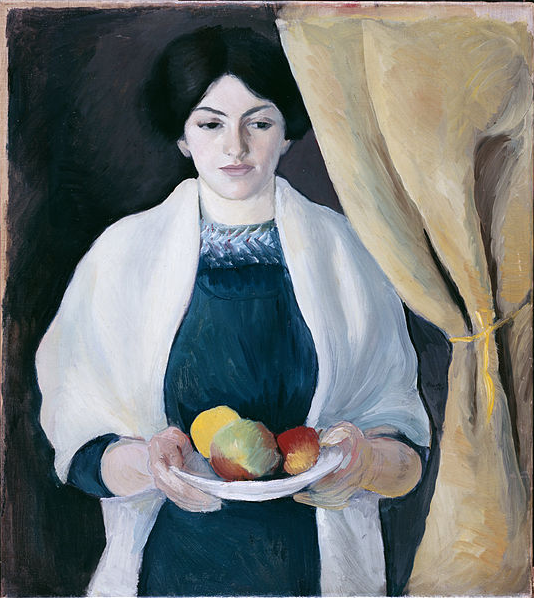
Through the influence of civilization, the male sex has been transformed. He has stripped off his previous nature and completely forgotten his past. On the contrary, no matter how much woman follows her male counterparts in the pursuit of being civilized, they never let go of their sex’s primordial ways, that is, the business of fooling men, which is second nature to them. This means that in the present civilization, no matter how much woman travel the same path as us, nevertheless their previous education, that is, the traditional wisdom of the sex is always predominant, since we, in forgetting our past and being completely changed, have become new men with new manners.
It’s true that with the progress of civilization, men gradually invent defensive measures against women. But, in plying its trade, this naughty sex has never ceased catching us in its traps, the way that a spider after catching one fly doesn’t stop catching flies.
No matter the number of buns a girls head is mountainously heaped with; no matter the amount of fake flowers that adorn the hat that covers her head; it is nonetheless always Eve’s head, or at least a little more refined, but perhaps also more dangerous.
No matter how low her neckline, [2] no matter how much cleavage she shows, you’ll never make out a woman’s heart.
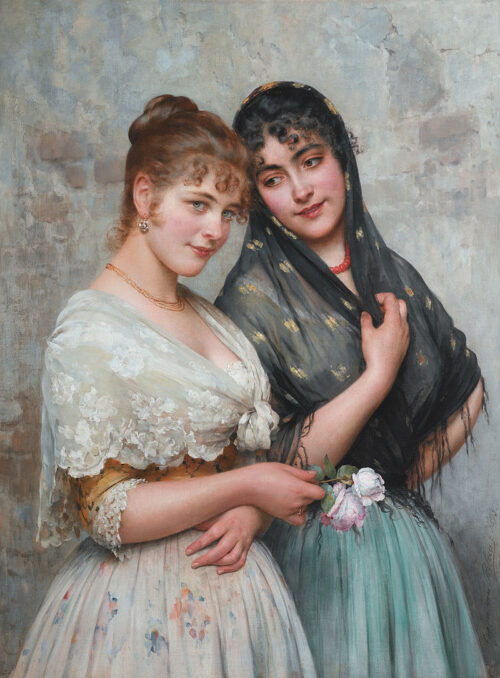
A woman’s heart is exactly like the magician’s book, [3] which in the span of a moment opens now to white, now to black, now to a picture of flowers, now decorated with fruit or painted with ships and buildings.
A woman knows everything, but knows nothing, or doesn’t want to know anything.
Woman generally fools the male sex very easily. If ever they are themselves fooled by men, they do so willingly. If she’s involuntarily fooled, that’s an exception, for woman can only be fooled by the devil, and that only when he appears in the form of a serpent or some other form.
Men, no matter how much they have been in and out of the workplace, can never have as accurate a concept of time as much as women have in their unemployment. They understand the philosophy of time, but nonetheless they don’t want to give up their frivolous conveniences no matter how difficult and unfortunate times we live through. They understand these words in their most literal and absolute sense, for them their convenience, no matter how trivial, no matter how frivolous, and at the same time expensive, is always convenient. Bread and a length of ribbon are of equal importance to them. In their dictionary the word “live” means “to want for nothing, to have everything in excess”.
A young man is expected to make great sacrifices for his lover’s pretty eyes, even if it’s to the point of him needing to give up his life: to hesitate at this is unforgiveable. Thus decrees their cruel commandment.
We wish to bring these creatures under our yoke and hold them hostage; but see for yourself that from the beginning, they’re of the same mind and, between you and me, till this very day they’ve made us their hostages.
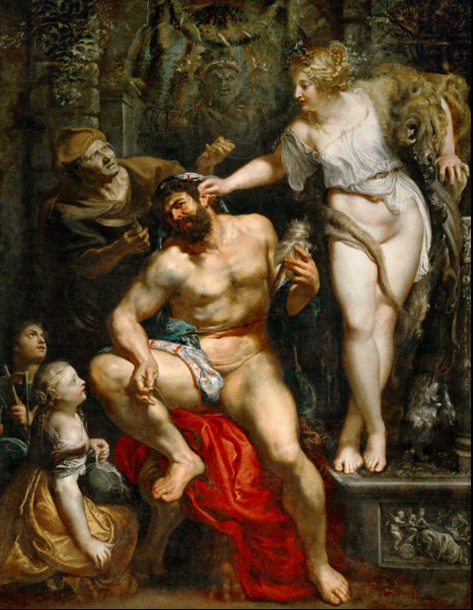
Although the world is a stage, and I’m an unworthy prompter, I see that the most successful actors in this play are women, who, when they get on stage, deliver their lines with more skill and subtlety than the male sex. To give an example (not for any other reason) women who use the pillows of the house for a fake butt [4] or a saddle, and stoop while they walk, look like camels to me, while the young ladies who wear soles with platforms [5] or heels, [6] especially if they’re a little tall, play the role of giraffes to perfection.
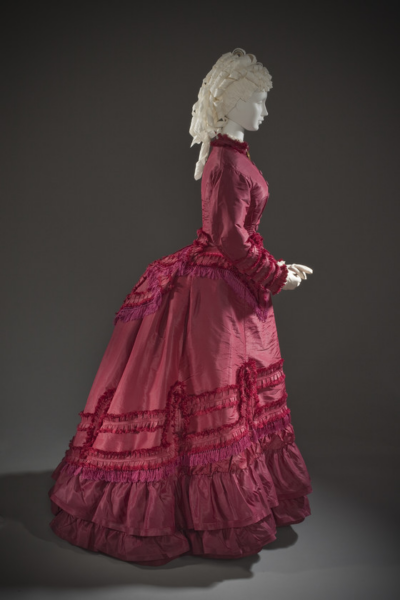
When they come into the public with a bun raised like a long mast on their heads, on top of which a narrow colorful flag also waves, you’d think they were sea ships cruising on land. When bobbing, that is, their breasts jutting out, their backs arched, one side swaying like this and the other side swaying like that, they walk, I say, “Those are waves that are going to swallow a man.” When they whiten themselves and look like corpses I say, “Their end is near.” When their breasts…when their hands…when their mustaches…when…don’t let me go on, reader, let me cut it short!
But when they paint their faces red like an Easter egg and hide them with a see-through black veil, I say, “Eh, they’re showing a little modesty as well. They’re realizing their foolishness. This is a slight bit of regret.” Although it would be better if they’d take that black veil and cover their arms and chests.
Footnotes
[1] Isaiah 65:25: “The wolf and the lamb will feed together, and the lion will eat straw like the ox, and dust will be the serpent’s food.”
[2] տեքոլթե, from French décolleté, “having a low neckline”.
[3] Refers to an old magic trick, commonly known as “the magical coloring book” in which the magician flips through the pages of a book that appears blank, says the magic words, and then flips through the same book to reveal colorful pictures.
[4] Baronian uses խըչլըխ, which is the Turkish word for the French “tournure”, the English word for which is “bustle”, a 19th century article of clothing for women, the Armenian rendering of which is կեղծոռիկ, quite literally, “fake butt”.
[5] սքարբին, French, scarpin
[6] պոթին, French, botin

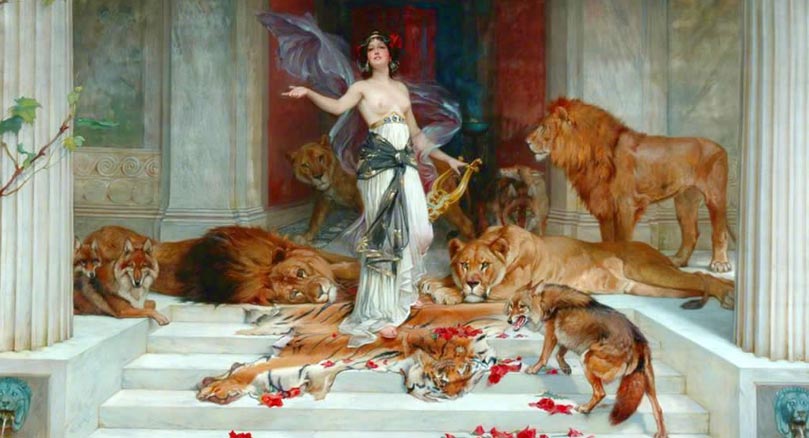


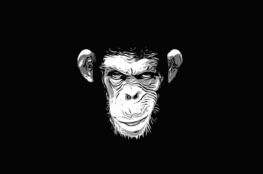
August 12, 2021
Հրաշալի թարգմանութիւն է, սիրելի Հրաչ։ Գեղարուեստական բարձր ճաշակը զգուշութեամբ պահպանուել է և բուն ստեղծագործութեանը համարժէք կշիռ է ներկայացնում։ Վարձքդ ի կատար։